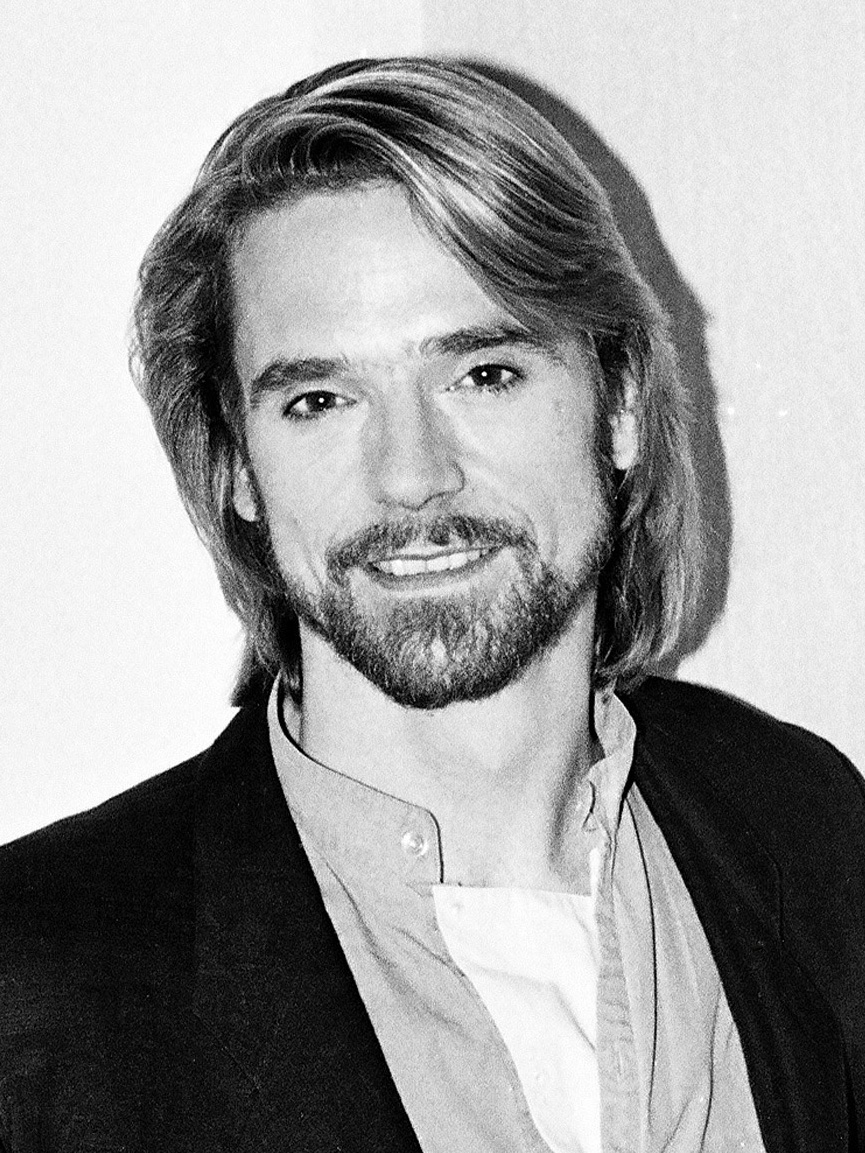
- Golden Globe Awards
Jeremy Irons, 1986 – on Fighting Against Brutality in “The Mission”
Jeremy Irons, twice Golden Globe winner, recently played Adam Driver’s father in House of Gucci (2021) directed by Ridley Scott. He was nominated as best actor for The Mission (1986) directed by Roland Joffé from a screenplay by Robert Bolt, produced by David Puttman and Fernando Ghia, score by Ennio Morricone. From our extensive archives of exclusive interviews going back 50 years to 1971, this is what Irons said to the journalists of the HFPA about how Jesuit priests in the 1750s fought on the side of the indigenous people of Paraguay against the Portuguese and Spanish troops sent to enslave them after Portugal acquired that Spanish colony.
Irons detailed the historical background research he did on the Jesuits’ work in South America from the 16th to the 18th century: “Fortunately, the Jesuits were in the habit of keeping journals of their work in Latin America between 1550 and 1750, which still exist and can be read. There are two exceptional books dealing with the subject. Lost Paradise: The Jesuit Republic in South America, by British Jesuit Phillip Caraman, and another book by John Hemming called Red Gold: The Conquest of the Brazilian Indians, which deals with the red skinned Indians who were valuable. So I read those books from cover to cover and extracts from the journals of these Jesuits covering this period, I discovered extraordinary men, who make most of us nowadays look like pygmies by their courage.”
This is how the director selected the indigenous tribe to portray the Guaraní from Paraguay in The Mission: “Roland Joffé spent a long time looking at various different tribes in Latin America. What he was very concerned with was to find a group of Indians who still had their own culture to portray the indigenous tribe in the film. We couldn’t use the Guaraní, because they had been fragmented by the very story that we watch on the screen, some of the tribes had been broken up and they had become too westernized. Also their equilibrium as a tribe would have been too upset by coming into contact with a Western film unit and their lifestyle. So he eventually asked the Wanana if they would work with us, because they had a generator and a television set. They live down in Southwestern Colombia on the banks of the San Juan River in seven villages and they’re still very primitive, they’re very poor, they have little to eat, but they have seen aeroplanes on the TV screen, so to ask them to come to film with us was not something that Roland felt would destroy their culture. And they were very proud to be able to play out some of their history, it gave them a great sense of themselves. I hope that, although they may be slightly more tainted by our so called civilization after this experience, we will have given them a feeling of their own worth, which perhaps they might not have been aware of so clearly before they worked with us.”
During the final confrontation between the Guaraní and the colonizers troops, Robert De Niro playing a former Spanish Army Captain turned Jesuit priest, fought them with weapons, while Jeremy Irons as Spanish Jesuit priest Father Gabriel, chose peaceful resistance: “I like to think that, if I was brave enough, which I’m not, I would be like Gabriel, I would face force with humanity and not with force. Unfortunately, I’m one of the large number of flawed human beings who, if somebody breaks in waving a weapon, will probably look for the nearest weapon to defend myself. But I have no doubt that, if we are to change and to become truly civilized, the way to face a man with a weapon who is trying to impose his will upon you, is to present your own humanity to him, because if he is able to destroy that humanity then he will be changed in that act. Shooting a defenseless person changes you more than shooting a man who is holding a gun, so if we are to try and change the violence in the world, we have to face it with naked humanity, and that’s what Gabriel tries to do at the end of the picture. The picture doesn’t say ‘might is right’ or ‘peace is right.’ It says that there are two ways and when we meet this problem in life, we must make our own decisions.”
This is what the actor learnt from Father Daniel Berrigan, the American Jesuit priest and anti-war activist, who was a consultant for the film: “He educated me greatly to the madness that we live in, he made me think seriously about the peace situation in the world and your country’s foreign policies, since you tend to be the colonialists now. We used to be, but no longer are in England. He also taught me that we must never feel that we can’t change anything, that actually the responsibility you have is to be well-educated on a particular subject, to see clearly the truth of a situation and to act upon it within your confines. So if it’s a case of making the poetic step of walking into a nuclear warhead factory and daubing your paint over it, it may seem pretty lunatic to most people, but it is a way of saying ‘this is abomination.’ And that is something which we need to be continually reminded of, because, indeed, it is amoral and is no way to run a globe as precious as ours.”

